Department and School Governance
While many decisions about academic policy are made at the campus or system level through the structures outlined above, much of the work of faculty governance happens locally, within the schools and departments, all of which have their own policies, procedures, guidelines and standards, and internal committees. A list of the schools and colleges, as well as all of the academic departments, programs, and curricula at the university, may be found here.
College of Arts and Sciences
Arts and Sciences Advisory Committee consists of four members of the Arts and Sciences Faculty holding the rank of professor, one elected by each of the divisions specified in Faculty Code Section § 8-1 from among its members. The term is three years, and members may not be elected to more than two consecutive terms. Sitting department chairs may not serve on this committee. The dean of the College of Arts and Sciences consults the committee on appointments, reappointments, and promotions that have the effect of conferring permanent tenure; promotions to a higher rank of persons holding permanent tenure at the rank of associate professor or assistant professor; and appointments to distinguished professorships.
- Bylaws of the College of Arts and Sciences outlines procedures for selecting divisional chairs and vice chairs, calling meetings, and establishing ad hoc committees.
- The Chair’s Manual contains information about the selection of department chairs in the College, the organization of the Dean’s Office, faculty voting requirements, policies pertaining to faculty in the College. Access to the manual is Onyen protected.
Eshelman School of Pharmacy
- The Organizational Structure contains an overview of the levels of organization within the school.
Gillings School of Global Public Health
- The Dean’s Council is comprised of department chairs, deans and directors from throughout the School who provide oversight and management of day-to-day operations such as administration, academics, research, service, communications, technology and external affairs.
The Graduate School
- The Administrative Board of the Graduate School was established in 1922 to consider matters affecting graduate education, to admit members to the teaching faculty of The Graduate School, and to authorize curricula and courses carrying graduate credit.
Kenan-Flagler Business School
- Several boards are involved in decision-making and oversight of the school’s operations: the UNC Kenan-Flagler Board of Visitors, the UNC Kenan-Flagler Alumni Council, the Kenan-Flagler Business School Foundation Board of Directors and the UNC Kenan-Flagler International Board of Advisors.
Adams School of Dentistry
- The DDS Academic Policies and Procedures Manual [access restricted to dental faculty] outlines the charges and responsibilities of the school’s curriculum, teaching and academic performance review committees.
School of Data Science and Society
- Officially launched in summer 2022, the School of Data Science and Society currently has two advisory groups (Pan-Campus Advisory Council and Research Advisory Council) helping to build the collective vision for the new school.
School of Education
- The Faculty Executive Council and Faculty Chair in the School of Education appoint committees, makes decisions, and acts on policy except as limited by university Faculty Code.
School of Information and Library Science
- The School of Information and Library Science Personnel Committee follows set criteria and procedures (PDF) on faculty appointments, reappointments, promotion and tenure. The School has an advisory Board of Visitors and the SILS Alumni Inclusion and Diversity Committee.
School of Medicine
- The Faculty Affairs Code, Appendix A sets forth policies and regulations for UNC Faculty Physicians, a medical practice among eligible clinical faculty in the School of Medicine, and outlines the composition and charge of the UNC Faculty Physicians Board.
- Constitution and Bylaws of the School of Medicine describe procedures and charges for faculty committees, as well as the responsibility of the faculty to determine educational policy, admissions guidelines and degree requirements.
School of Nursing
- The nursing school’s password-protected faculty governance page includes their Faculty Constitution and Bylaws.
University Libraries
- The Administrative Board of the Library advises the University Librarian on the administration of the University library system, formulates general policies governing the acquisition and use of library collections, and review the University librarian’s budget request.

